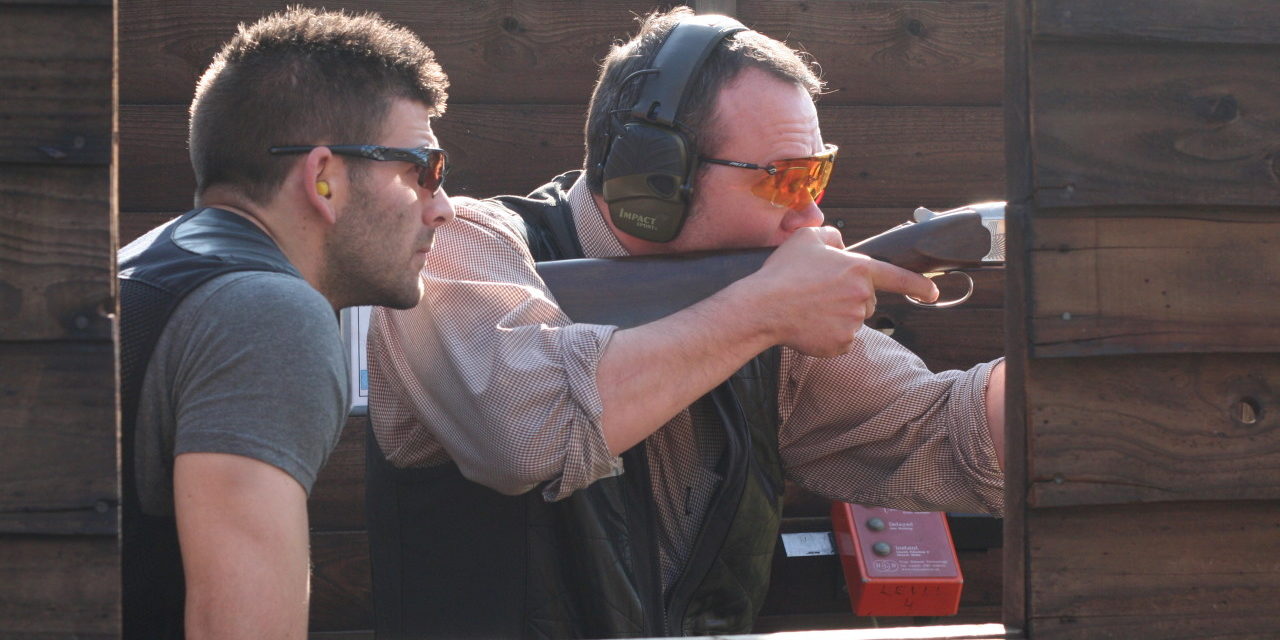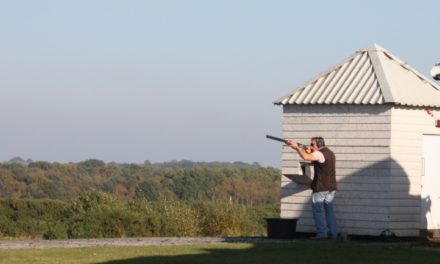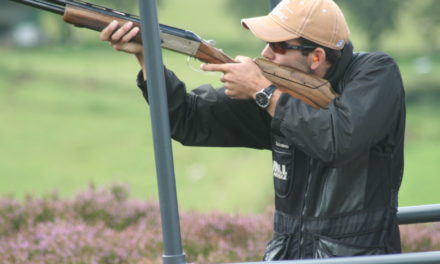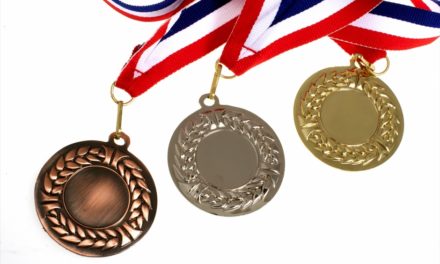In the first of our exclusive articles from top shot Ed Solomons – we ask his opinion on choosing the right coach or instructor to help develop your clay shooting.
Choosing the right coach
So, you have made the decision to get some coaching; all you need to do is choose a coach. It sounds simple enough, but the decision process should be rather more in depth than looking through a magazine or website and booking an hour with the closest person with a coaching badge. I’d suggest breaking your approach into steps:
Define your goals & targets
The first thing that should be done is for YOU to have a clear idea of what you want to get out of a coaching session. This will come about by a combination of factors; being aware of any possible bogey targets, patterns in poor performances, a desire to go up a classification, or maybe to get an England badge.
These goals should be written down or memorised so when you settle on the right person to help take you forward, you can explain to them where you are, and where you would like to be so they are able to make an initial plan that can help you get where you want to be. This will be a fluid plan, and may well end up being adjusted session to session depending on your progress and any possible sticking points that you come across, which everyone has from time to time.
Your goal will have a bearing on your choice of coach; if you are just starting out and want to get into the 60s at a registered sporting, then a reasonably local club coach will not be a bad starting point – you could look on the CPSA website for a list of these. If you are looking to break into AA/AAA class, or representing your country, then you may want to look at someone more specialised. Either way, the factors below will still apply to your selection, so keep reading!
Location, Location, Location
Location is often one of the first things that crops up when people look for a coach. Personally, this would be toward the bottom my checklist if I were looking for someone to help me. Look at it this way; you have made the leap to see a coach as you’ve seen performance stagnate/drop off over the past few months, you are enjoying your shooting less and starting to think of taking up fishing. Do you see the closest man, or do you find out who has had results and go for a morning with them? It may be an extra couple of hours in the car, or another few quid, but if you get in the car on your way home having nailed down a couple of fundamental errors in technique, and with renewed confidence that you CAN go out and continue improving as opposed to going backwards then it will seem a very short trip home.
Contrast that with weekly one-hour sessions with the local guy standing behind you saying “high” and “behind” without giving you any real insight into why you are missing – which is the reason you are paying him – and it soon becomes apparent which is the best choice for your personal development.
You will find this much better value when you tally up improvements gained vs money spent.
It’s all about the results
For me, there is only one real way of narrowing down the right coach for you, and that is results. Advertising, coaching badges, and price mean nothing. The first port of call should be a shortlist generated by word of mouth. The reason you are getting coaching, is because you want results. Have a word with those people that you know have had lessons and quiz them, they won’t mind as long as it isn’t half way through a round! The ones that have had results will be more than happy to tell you who they used, what to expect, and how they felt it has improved their game.
Be wary of the “I have used Johnny Nobody for years, he’s a great guy” recommendation. Often, they are a great guy, but you aren’t there to have a chat about old times or catch up on clubhouse gossip; you are there to learn. If he has been coached by the same guy for years, look at his scores. If the student is on a constant climb upwards then he may be onto something. If he is where he was 2 years ago, he is paying for an expensive button pusher.
Making the choice
When you have a list of three or four possible options, try and have a catch up via phone, email or ideally, a face to face chat. By this stage all of your shortlist should be technically competent, but you need to find the person who you gel with best. Everyone has different ways of explaining, different personalities, and different methods. It’s not a case of which is right or wrong, rather finding the one who suits you best.
If it means you need to book a couple of hours with 2 different people to get to your final choice then go ahead; you will take something from both lessons, but you will almost certainly have made a decision by that point about who is the man for the job of taking you to the next stage of your shooting career.
It doesn’t finish in the clubhouse
Learning is an ongoing process. You can have fantastic improvements from a morning/afternoon one to one, but the real change will come after a prolonged period of sessions with the same coach. These don’t have to be weekly, it could be a half day every month to six weeks. You will have built up a good working relationship, they will be familiar with your style, areas to focus on, and should be keeping track of your performance and making adjustments to your strategy as the weeks go by. Sometimes you may even go backwards score wise whilst trying to make technical adjustments, but this should be explained at the time, as in the long run it will be to give you targets.
One thing I believe is vitally important, but overlooked by many is the post lesson follow up. Personally, I want to know exactly how everyone I work with is getting on, how they did at the weekend, what problems they are having etc. It is all part of the process of getting you to perform to the best of your ability. Often, if people are struggling you can run over a couple of points on the phone or via email and help them on their way without them having to come out and see you. Your coaches’ priority should be to get you hitting as many as possible, not trying to squeeze an extra couple of hours work out of you when it can be done with a few words over the phone.
Talking over the bad days is just as important as enjoying the great days.
Don’t fix what isn’t broken
A pet hate of mine is trying to fix what isn’t broken. Often, people will be shooting reasonably well but there is an obvious flaw in their technique; this is perfectly acceptable to change, as in the long run it will help them. However, if you always shoot teal well, be they close, far, fast or slow, then as far as I am concerned keep at it. It is no use trying to get you to shoot them with my preferred method as the best possible outcome is you keep hitting them. More likely you will miss a couple and get wound up as “I never missed bloody teal shooting my way”. As a shooter, you will know better than anyone what you shoot well and what you struggle on. If someone tries to change the way you approach a target that you always destroy 10 out of 10, then that should be your last lesson with them. You can make tweaks if you have good reason too, but otherwise save their time and help out with a bird that they can’t shoot consistently.
Enjoy your shooting
Finally, you should enjoy your session.
If you’re shelling out a couple of hundred quid to get barked at by your coach then move on. The chances are that they aren’t going to be the best communicator and you’re going to pick up little more than a bruised ego. You shouldn’t expect a high five every time you hit one, but the whole reason you book a lesson is to improve both your skill set and enjoyment of your sport, and the learning aspect of that should be no different.
So, get out there, get asking and get learning! I’m always happy to have a chat if you bump into me at the clubhouse or wherever, and am always happy to pass on names of some of the guys who I know do a good job.
Best of luck!
Ed
For details of Ed Solomons coaching – please visit his page here






Very nice article Ed.
Well put together, concise and practical advice on finding the best coach for your needs. Hopefully one day, we will have just one organisation that offers a well earned qualification in this field!
We agree Guy – needs to be made easier to understand who “has it” and who “doesn’t”… welcome aboard by the way!